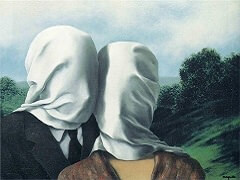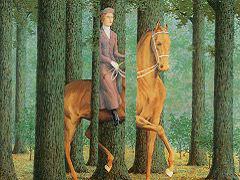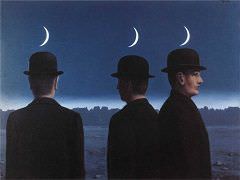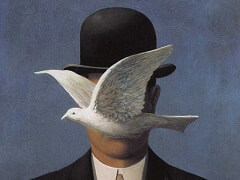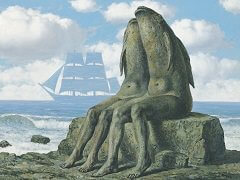Sheherazade, 1950 by Rene Magritte
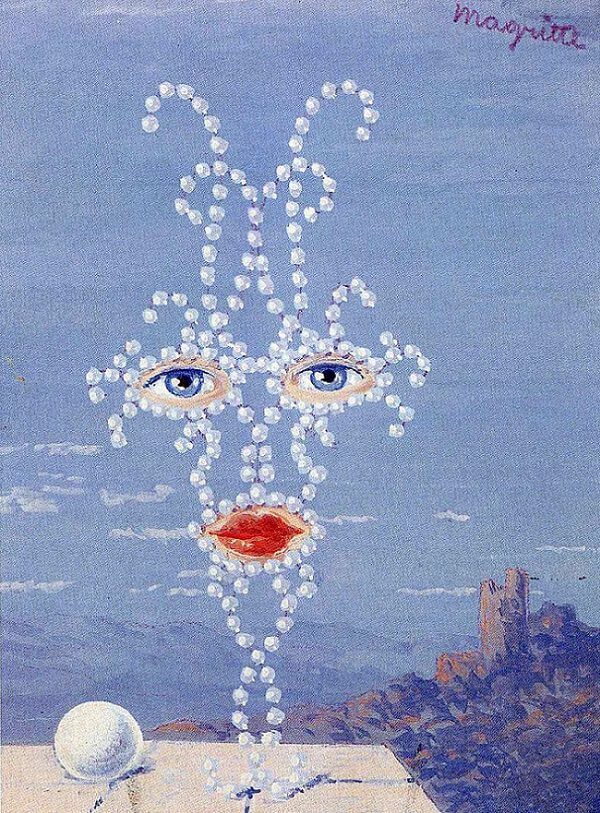
One of first of many Sheherazade themes Magritte painted. Magritte probably based his ideas on Edgar Allan Poe's "The Thousand-and-Second Tale of Scheherazade." From Poe, "Her name was Scheherazade, and her idea was, that she would either redeem the land from the depopulating tax upon its beauty, or perish, after the approved fashion of all heroines, in the attempt."
Poe's tale is based on the legendary Persian queen, Scheherazade, the storyteller of One Thousand and One Nights. The original tale goes: Every day Shahryar (or "king") would marry a new virgin, and every day he would send yesterday's wife to be beheaded. This was done in anger, having found out that his first wife was betraying him. He had killed three thousand such women by the time he was introduced to Scheherazade, the vizier's daughter.
In Sir Richard F. Burton's translation of The Nights, Sheherazade was described in this way:
"Sheherazade had perused the books, annals and legends of preceding Kings, and the stories, examples and instances of by gone men and things; indeed it was said that she had collected a thousand books of histories relating to antique races and departed rulers. She had perused the works of the poets and knew them by heart; she had studied philosophy and the sciences, arts and accomplishments; and she was pleasant and polite, wise and witty, well read and well bred."
Against her father's protestations, Scheherazade volunteered to spend one night with the King. Once in the King's chambers, Scheherazade asked if she might bid one last farewell to her beloved sister, Dinazade, who had secretly been prepared to ask Scheherazade to tell a story during the long night. The King lay awake and listened with awe to Scheherazade's first story and asked for another, but Scheherazade said there was not time as dawn was breaking, and regretfully so, as the next story was even more exciting.
And so the King kept Scheherazade alive as he eagerly anticipated each new story, until, one thousand and one adventurous nights, and three sons later, the King had not only been entertained but wisely educated in morality and kindness by Scheherazade who became his Queen.



